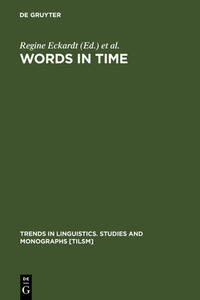
Meanings of words are constantly changing, and the forces driving these changes are varied and diverse. Linguistic analyses are usually concerned with language-internal processes, while investigations of language-external historical developments tend to disregard linguistic considerations. It is evident, however, that an investigation of diachronic semantics will have to consider both sides: a specific theory of meaning including a proper place for lexical semantics on the one hand, and incorporate knowledge about the world and the social and cultural environment of speakers who use language as a tool for communication on the other. The collection focuses on meaning change as a topic of interdisciplinary research. Distinguished scholars in diachronic semantics, general linguistics, classical philology, philosophy of language, anthropology and history offer in depth studies of language internal and external factors of meaning change. This broad range of perspectives, unprecedented in research publications of recent years, is a pioneering attempt to mirror the multi-facetteous nature of language as a formal, social, cognitive, cultural and historical entity. The contributions, each exploring the research issues, methods and techniques of their particular field, are directed towards a broader audience of interested readers, thus enhancing interdisciplinary exchange.